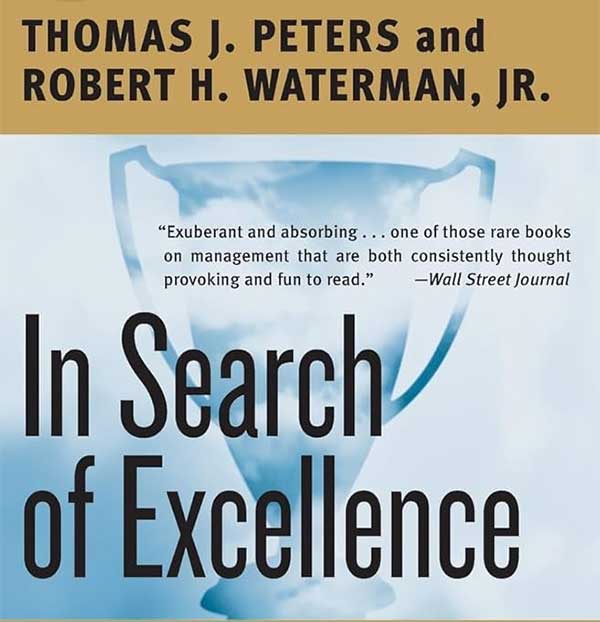The Peters and Waterman model, also known as the "Excellence theory" or "In Search of Excellence," is based on the research conducted by Tom Peters and Robert H. Waterman Jr. for their book "In Search of Excellence."

The Peters and Waterman model aimed to identify the common characteristics shared by successful and enduring businesses.
Here are the key takeaways and some tips on how to implement and practice the principles of the Peters and Waterman model:
1. Bias for action
Successful companies are characterized by a bias for action, where decision-making is quick and responsive to changing market conditions. To implement this principle, encourage a culture of empowerment and risk-taking within your organization. Encourage employees to take initiative and make decisions without excessive bureaucracy.
2. Close to the customer
Excellence companies maintain a strong focus on their customers and strive to understand their needs deeply. To practice this, ensure that customer feedback is actively sought and incorporated into product development and service delivery processes. Encourage frontline employees to interact with customers regularly to gain insights into their preferences and expectations.
3. Autonomy and entrepreneurship
Successful organizations foster a culture of autonomy and entrepreneurship, where employees are empowered to innovate and pursue new opportunities. To implement this principle, provide employees with the freedom to experiment and pursue their ideas. Encourage a culture of learning from failure and reward entrepreneurial behavior.
4. Productivity through people
Excellence companies recognize the importance of their people and invest in their development and well-being. To practice this, prioritize employee training and development initiatives. Create a supportive work environment where employees feel valued, respected, and motivated to perform at their best.
5. Hands-on, value-driven
Successful organizations have leaders who are actively involved in the business and are driven by a clear set of values. To implement this principle, lead by example and demonstrate your commitment to the organization's values through your actions. Encourage alignment between individual and organizational values and ensure that decision-making is guided by ethical considerations.
6. Stick to the knitting
Excellence companies focus on what they do best and avoid spreading themselves too thin. To practice this, identify your organization's core competencies and areas of competitive advantage. Concentrate resources on activities that align with these strengths and avoid diversification into unrelated areas.
7. Simple form, lean staff
Successful organizations maintain simple organizational structures and keep their staff lean to promote efficiency and agility. To implement this principle, streamline decision-making processes and eliminate unnecessary layers of hierarchy. Encourage collaboration and teamwork to maximize the productivity of your workforce.
8. Simultaneous loose-tight properties
Excellence companies exhibit a balance between flexibility and control, allowing for innovation and adaptation while maintaining consistency and coherence. To practice this, establish clear strategic objectives and values that provide a sense of direction and purpose. At the same time, allow for flexibility in how these objectives are achieved, empowering employees to find creative solutions to challenges.
By focusing on these key principles and implementing them in your organization, you can emulate the success of companies that have achieved excellence according to the Peters and Waterman model. Remember that achieving excellence is an ongoing journey, and continuous improvement is essential for long-term success.